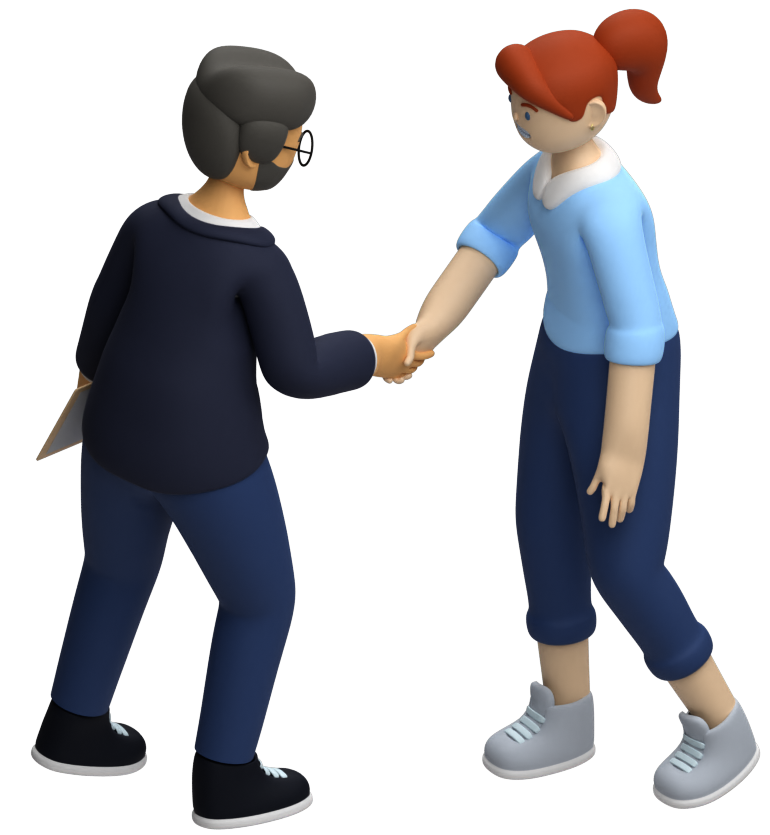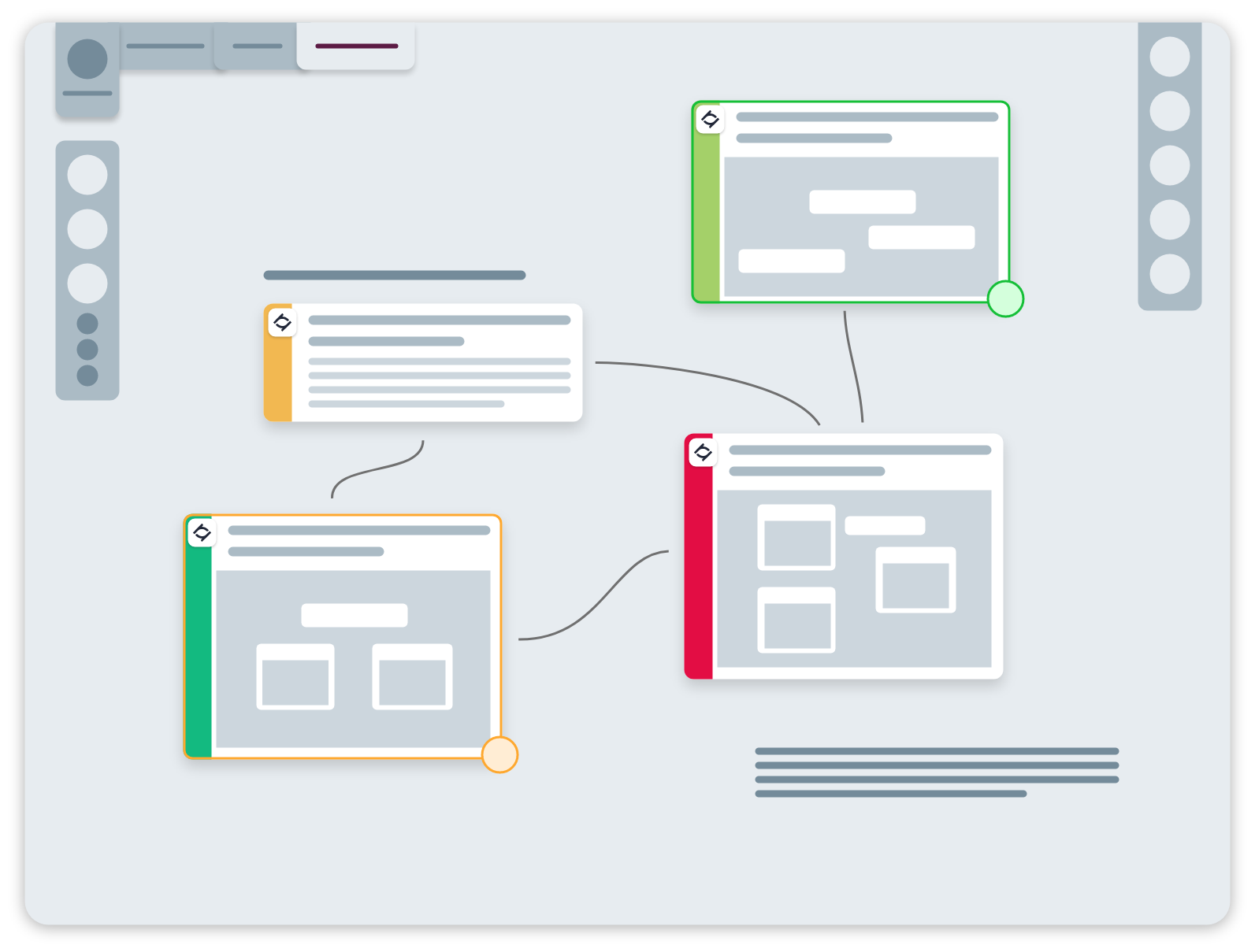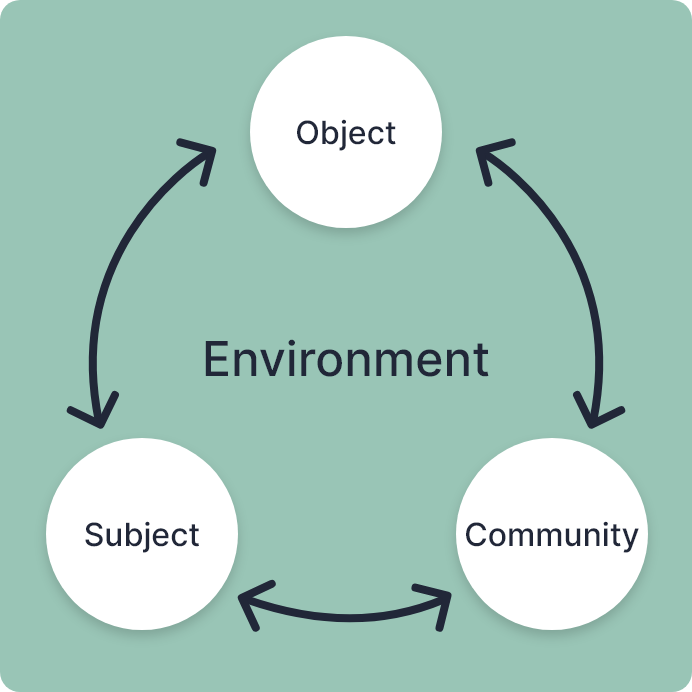The Bridge between Learners and Teachers
We strive for deep learning, but we observe poor connection and fading memories

Hypothesis
If we can design a means to naturally and efficiently map out the evolving understanding of concepts that closely matches how the brain works, then we can provide a structure:
- for students to scaffold their learning on prior knowledge;
- for teachers to help assess levels of learning by accessing a much deeper view of the current state of knowledge acquisition.
Design Requirements
Coherent with human cognition
- Represent levels of abstractions;
- Represent different types of relations between information.
Flexible, semi-structured
- Build from a partial understanding;
- Reorganize as things make more sense;
- Support divergent and convergent thinking (creativity processes).
Efficient for a large amount of knowledge
- Structures multiple thousands of concepts and relations;
- Use the strength of the visual system, but avoid overload.
Smooth usage, multimodal
- Stay in the flow;
- Good first choice for most tasks to centralize work.
Collaborative
- Support co-creation;
- Build a common vision, up-to-date.

Concept Space
A graphical workspace aiming to represent and manipulate mental representation in a way that closely resembles mental structures as informed by cognitive science.
** It is pretty different from a concept map!
Researches
Several areas of research are at the source of the design of concept space:

*Diagram of Vygotsky’s Activity Theory.
Articles and Publications
- Foley, David (2022-11-01). Discovering Concept-Space to Improve Student Experience and Teaching in Design Projects. Proceedings of the Canadian Engineering Education Association (CEEA).
- Foley, David (2022). L'espace conceptuel : un dispositif pédagogique inédit. Agir ensemble dans l'enseignement supérieur: enjeux et perspectives - Sciencesconf.org. AIPU. Rennes (France).
- Foley, David; Charron, François; Plante, Jean-Sébastien (2018). Potential of the CogEx Software Platform to Replace Logbooks in Capstone Design Projects. Advances in Engineering Education.
Conferences and Presentations
2024:
- Canadian Engineering Education Association (CEEA). June 2024. Edmonton, Canada.
- Association Internationale de Pédagogie Universitaire (AIPU). May 2024. Sherbrooke, Canada.
2023:
- Technopedagogical marathon of the Association pour les applications pédagogiques de l’ordinateur au postsecondaire (APOP). January 2023. Virtual.
- Association québécoise de pédagogie collégiale (AQPC). February 2023. Virtual webinar.
- General Education, Pedagogy and Assessment Conference, American Association of Colleges and Universities (AAC&U). February 2023. New-Orleans, United States.
- Canadian Engineering Education Association (CEEA). June 2023. Kelowna, Canada.
- Association québécoise de pédagogie collégiale (AQPC). June 2023. Rivière-du-Loup, Canada.
- Society for Teaching and Learning in Higher Education (STLHE). June 2023. Charlottetown, Canada.
2022:
- Association Internationale de Pédagogie Universitaire (AIPU). May 2022. Rennes, France.
- Canadian Engineering Education Association (CEEA). June 2022. Toronto, Canada.
- Association québécoise de pédagogie collégiale (AQPC). June 2022. Laval, Canada
What's Next?
Our latest findings outline a high potential in improving education; we are welcoming everyone that wants to use concept-space, for improving education or for research.
Future research ideas
- Mesure long-term benefits of learning through concept-space construction and organization, including lifelong learning.
- Study how concept-space provides an inclusive tool for both divergent and convergent learning styles, creativity.
- Provide alternative learning assessment that can't be generated by AI (Chat GPT).
- Develop detections of patterns in knowledge construction to help identify ADHD and giftedness (probably AI).
Start the journey with Relate
Click the button below to start the Relate's journey. Contact us to discuss a personalized offer or to start your first pilot project.